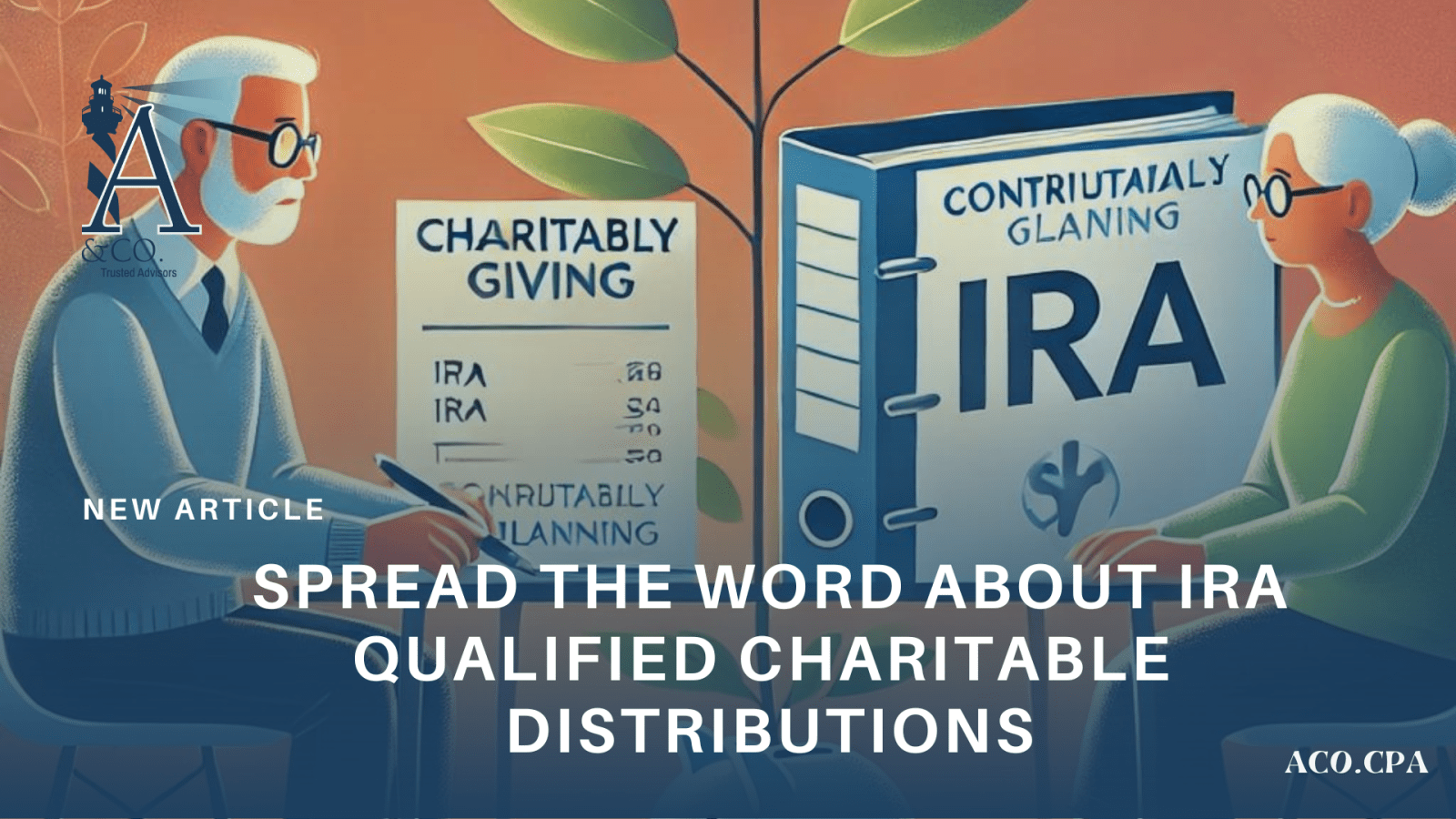The SECURE 2.0 Act introduced new provisions for IRA qualified charitable distributions (QCDs) that can significantly benefit your not-for-profit organization—if your donors are aware of them. By familiarizing yourself with these updates and communicating their tax benefits effectively, you can inspire your supporters to contribute more through their IRAs.
From QCDs to RMDs
Let’s start with the basics. QCDs, established in 2006 and made permanent in 2015, allow taxpayers aged 70½ or older to donate up to a certain amount directly from their IRAs to a qualified charity. While donors cannot claim a charitable deduction for a QCD, the distribution amount is excluded from their taxable income, which may provide a tax advantage. Additionally, QCDs can be used to meet required minimum distribution (RMD) obligations for those subject to them.
Enhancements Under the SECURE 2.0 Act
Signed into law in 2022, the SECURE 2.0 Act made key improvements to QCD rules. For instance, the previous annual limit of $100,000 for QCDs is now indexed for inflation, reaching $105,000 for 2024.
A major new opportunity also emerged in 2023: donors can make a once-in-a-lifetime QCD of up to $50,000, which is also indexed for inflation ($53,000 in 2024), through a split-interest entity. This type of entity, which includes charitable gift annuities, charitable remainder annuity trusts, and charitable remainder unitrusts, allows donors to give to your nonprofit while creating an income stream for themselves. After a designated period, the remaining funds go to your organization.
As with regular QCDs, the amount transferred to a split-interest entity does not qualify for a charitable deduction but does count toward the donor’s RMD and is excluded from their taxable income. If married, each spouse can make a QCD to the same split-interest entity, effectively doubling the contribution. These entities must pay a minimum annual amount of 5% of the gift to the donor (or their spouse), and those payments are taxed as ordinary income.
Increasing Donations: How to Promote QCDs
To encourage more donations, consider creating informative materials such as presentations, brochures, or digital resources that explain the tax advantages of QCDs. Highlight how a QCD may be especially attractive for donors who:
- Cannot benefit from a charitable deduction because their total itemized deductions don’t exceed the standard deduction for their filing status, or
- Wish to donate more than they can deduct due to adjusted gross income (AGI) limits on charitable deductions. For example, cash gifts to public charities are generally limited to 60% of AGI, while donations of long-term capital gains property are capped at 30% of AGI.
When promoting QCDs, don’t get too bogged down in technical details. Supporters are often more motivated by seeing the impact of their contributions. Be specific about how their QCD will support your organization, whether by funding a new program, facility, or staffing needs.
Qualified Recipients
It’s important to note that not all organizations are eligible to receive QCDs. Donor-advised funds, private foundations, and supporting organizations are excluded. Make sure your nonprofit is qualified to accept QCDs and is properly set up to receive them.
If you need assistance in ensuring your organization can accept QCDs, reach out for help at (203) 925-9600 or email, [email protected]. Our experts can help you leverage these SECURE 2.0 updates, then you can boost contributions and further your nonprofit’s mission.



